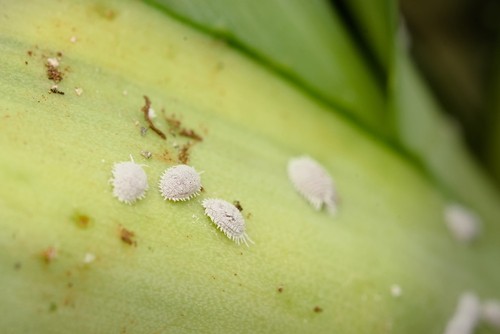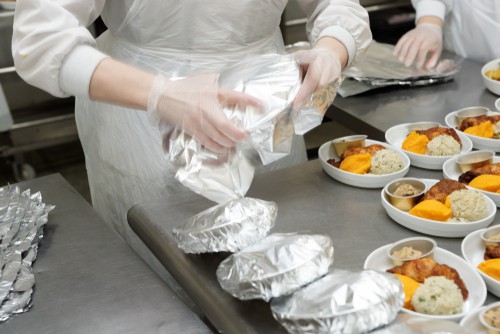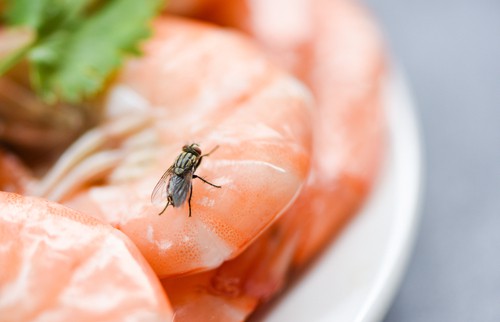
Risks of Delaying Termite Control Treatment – Don’t Delay It!
March 10, 2023
Pest Infestations: When to Seek Professional Help for Your Garden
June 22, 2023The Role of Pest Control in Food Safety and Quality Assurance

The Role of Pest Control in Food Safety and Quality Assurance. Pest control is an integral component of food safety and quality assurance in the food industry. Pests such as rodents, insects, and birds can contaminate food products, leading to health hazards, recalls, and damage to a company’s reputation.
Effective pest control measures are necessary to prevent infestations, maintain product integrity, and adhere to food safety regulations. Read on!
Table of Contents
Pest control’s roles in food safety and quality assurance

Prevention of Pest Infestations
Pest control is essential in food safety and quality assurance by preventing infestations. Effective strategies include regular inspections, sealing entry points, and sanitation practices. Assessments can identify potential habitats for pests, like breeding grounds or entry points while filling gaps and cracks can prevent them from entering the facility. Moreover, proper disinfection and sanitation eliminate attractants like food residues, spills, and waste from the facility.
Early Detection of Pest Activity
Early detection of pest activity is essential in preventing them from taking hold. Regular monitoring can detect signs of infestation, such as droppings, gnaw marks, and nesting materials; early recognition allows prompt action to be taken, such as applying baits, traps, and insecticides to help stop pests from spreading, reproducing or damaging food products. Immediate action also minimizes food product damage caused by problems.
Identification of Pest Species

Accurate identification of pest species is essential to implement successful pest control measures. Different pests necessitate different strategies, and misidentification could result in ineffectual outcomes. Furthermore, labels can give insight into pest habits, habitats, and behavior which could aid in creating targeted control tactics; for instance, knowing that a particular pest prefers certain foods or environments could inform sanitation practices or the placement of bait stations accordingly.
Implementation of Integrated Pest Management (IPM)
Integrated Pest Management (IPM) is a holistic approach to pest control that incorporates multiple strategies while minimizing the use of pesticides. IPM involves cultural, physical, biological, and chemical management measures and sanitation practices to prevent infestations. Examples include sanitation, exclusion trapping biological control agents, and targeted pesticide applications. IPM has proven successful and sustainable in helping reduce food product residue risks caused by pesticide residues.
Targeted Pesticides
Pesticides are an essential element of food industry pest control. But their indiscriminate application can pose health hazards and environmental damage. On the other hand, targeted pesticides are designed to be selective in their target pest species while minimizing their effect on non-target organisms. Targeted pesticides reduce risks from residues on food products and exposure risks from humans and the environment.
Compliance with Food Safety Regulations

Adhering to food safety regulations is paramount in the food industry. Pest control plays a significant role in meeting these regulations. Companies must implement pest control measures to prevent infestations and guarantee product safety and quality. Failure to abide by these laws could result in expensive fines, product recalls, or reputation damage for companies.
Protection of Food Products
Pest control is essential to protect food products from contamination by pests such as rodents, insects, and birds. Pests like rodents, insects, and birds can contaminate food with their droppings, urine, hair, or feathers, leading to health hazards or product recalls if not handled correctly. Effective pest control measures prevent pests from accessing your effects, decreasing contamination risks while maintaining product quality.
Preservation of Equipment and Infrastructure
Pests can wreak havoc on equipment and infrastructure in the food industry. Rodents chew through electrical wires and structural materials, leading to costly repairs and downtime; insects such as beetles or moths infest stored products, damaging packaging, and equipment. Effective pest control measures prevent these damages, cutting maintenance costs and extending equipment lifespan.
Promotion of Employee Health and Safety

Pest control is paramount for protecting employee health and safety in the food industry. Pests often carry diseases and allergens that pose risks to employees’ well-being. Effective pest control measures can prevent these spreads and reduce exposure risks to diseases or allergens. Furthermore, proper training and personal protective equipment help minimize pesticide exposure during pest control tasks.
Maintenance of Reputation and Brand Image
Pest infestations and product recalls can damage a company’s reputation and brand image. Customers expect food products to be secure and high-quality, leading to a loss of consumer confidence and trust. Effective pest control measures prevent infestations while maintaining food product safety and quality. Keeping this strong reputation helps food companies maintain market share and profitability.
The Role of Pest Control in Food Safety and Quality Assurance – Conclusion

Pest control is an integral component of food safety and quality assurance in the food industry. Pests can lead to contamination, equipment and infrastructure damage, and health hazards for employees and consumers.
Effective pest control measures such as regular inspections, sanitation practices, targeted pesticide applications, and integrated pest management (IPM) can prevent infestations, protect food products from spoilage, and guarantee compliance with food safety regulations.
Maintaining a company’s reputation and brand image necessitates effective pest control measures to avoid costly recalls or harm to one’s reputation. In conclusion, effective pest control is necessary for maintaining food product safety and quality while promoting employees’ and consumers’ health and well-being in the food industry.



